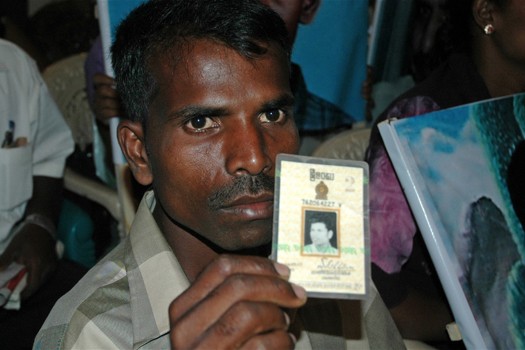NEW YORK, February 11, 2016—The International Center for Transitional Justice (ICTJ) and the Human Rights and Atrocity Prevention Clinic at Benjamin N. Cardozo School of Law are pleased to announce a strategic research partnership to examine international law and practice regarding enforced disappearance and the missing.
Under the agreement, student participants of the clinic will review the evolution of these concepts and their legal implications, and share their results with ICTJ, an international organization that works in countries seeking to address legacies of mass human rights violations.
“Our collaboration grew out of a joint interest in taking a fresh look at the ongoing and emerging challenges of finding the truth and advancing justice for families with a forcibly disappeared or missing relative, one of the most wrenching issues in many societies that have gone through armed conflict or dictatorship,” said Marcie Mersky, ICTJ Program Director. “We already do considerable work on these issues, but we hope the partnership with Cardozo will help us identify ways to make this work even more effective.”
The results of the research conducted by Cardozo students and discussions with the Cardozo faculty will help ICTJ frame advice to victims and authorities in places as diverse as Colombia, Nepal, and Lebanon.
“As a law school-based clinic, one of the chief ways we can help advance ICTJ’s work is to examine some of the legal issues embedded in questions of enforced disappearance,” said Carolyn Patty Blum, Interim Director, Cardozo Law Institute in Holocaust and Human Rights and Cardozo’s Human Rights and Atrocity Prevention Clinic. “To begin with, we will focus on the relationship between enforced disappearance and the meaning of the ‘missing’ in international law.”
Blum has assigned a team of four students to begin work on the project for the spring 2016 semester, under the supervision of Telford Taylor Visiting Assistant Clinical Professor of Law Jocelyn Getgen.
“This is the beginning of a continuing partnership to assist ICTJ as it advances its work on this vital issue in countries in transition and post-transition,” said Mersky. “We trust that this research will be as beneficial to Cardozo clinic students as it will be for ICTJ.”
Media Contact
Refik Hodzic, ICTJ Communications Director
E-mail: rhodzic@ictj.org
Phone: +1 917-637-3853
PHOTO: A Sri Lankan man holds a photo of a relative who went missing during the country's civil war. (Amantha Perera/IRIN)
